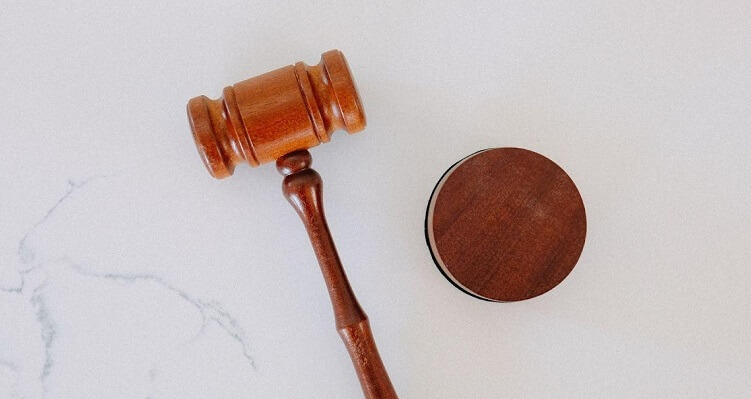Tips to protect yourself as a whistleblower
As a whistleblower, it can be challenging to protect yourself and your employment status, but by no means is it impossible. With the proper research and planning, your legal and professional rights will be protected. Keep reading for tips to help protect yourself as a whistleblower.
1. Keep a detailed record of what you witnessed
First, take notes of what you witnessed. Write about what happened, who was involved, and the timeline of events. Try your best to keep your record on a personal device, not a work computer. If you have to use your work computer, use an encryption service.
Next, when you get an opportunity to speak to someone higher than those responsible for the misconduct, share your findings with them by providing them with the detailed document you created while taking notes.
They may be able to help you restrain retaliation from those who were committing misconduct that you reported. Finally, if you do not feel comfortable speaking up or being open about what happened but still want to say it through channels like the corporate whistleblowing hotline or the internal affairs department at your company,
Keep a record of your conversations and provide that information as well. This will help defend your case later if a lawsuit warrants an investigation of what happened during your conversation with the manager or supervisor.
2. Meet with an attorney before going public
Do your due diligence in consulting with an attorney before going public. They will be able to help you navigate any legal issues that may arise and protect your identity as a whistleblower.
Work with internal and external stakeholders. If you’re required to report misconduct, make sure that you have a good relationship with those who are relevant to the misconduct (like your boss or HR department).
It will ensure that if something does happen, there is a support system for you. Be prepared for retaliation. If someone at the company finds out about your whistleblowing activity, they may try to retaliate against you in some way.
If this happens, you must have backup plans ready to move forward.
3. Protect your identity and communications
One of the best ways to prevent harassment, threats, or unlawful surveillance is to digitally protect your identity and communications. Having a secure, private email is critical. Turn on encryption if you can. If you need to use work systems, use as few as possible and never use personal devices for work-related tasks or enter personal information into the system.
4. Establish a support network
It’s important to establish safeguards before you report misconduct. By having a team of people who know your intentions and who support you, you gain the power to speak up without fear of repercussions.
The value of having allies in your corner cannot be overstated. It is easy to be alone when someone is listening to what’s going on at work and waiting for your next move. Finding like-minded people who understand the value of speaking up against wrongdoing can save you from isolation and help keep you protected as a whistleblower.
There are many ways that whistleblowers form alliances with like-minded people and form support networks. Examples include joining online communities or professional organizations, sharing information with friends and family, and working directly with an attorney or lawyer specializing in whistleblowing cases, such as the expert whistleblower lawyers with Bracker & Marcus LLC.
Suppose it seems too much work to establish a network before reporting misconduct. Consider adding some safeguards around reporting misconduct after installing that network, such as ensuring that partners know about all meetings and discussions related to whistleblowing before they occur so they can protect themselves if necessary.
5. Prepare for the consequences.
To protect yourself as a whistleblower, you should think ahead of time about how you will handle any consequences that may come your way. Knowing the results in advance is important so you can prepare for them.
A key part of protecting yourself is to be ready for what might happen if you speak up and it causes a problem. If possible, think about whether other people can help you process and manage the situation if it gets out of hand. If those people are trustworthy, they could be present at meetings where the problem arises.
This person would also serve as a witness to what happens during the session. If these things happen and something goes wrong, this person would be able to help make sure that your voice gets heard and your rights get upheld.
Finally, consider your goals when preparing for potential ramifications as a whistleblower.
- What do you hope to achieve from speaking up?
- Is there anything else that might help ensure the situation stays manageable?
- Do these goals align with what’s best for your company or industry?
6. Speak out!
The most important thing to remember is that speaking out and reporting illegal activity is often the only way to protect yourself. Many companies have whistleblower policies that protect employees, but these policies can change rapidly.
If you feel like you are in a potentially unsafe situation, speak out for your safety. You should also be aware of your company’s culture and to whom you may ultimately report. Knowing who might be supportive of your decision or who has the power to investigate what you have found is helpful.
Need to report something at work? We can help.
Whistleblowers play an important role in our country by exposing illegal or unethical behavior. However, they are often at risk of retaliation from their employers. Nevertheless, whistleblowers can take steps to protect themselves, including seeking legal counsel and reporting any threats or retaliation.
Our knowledgeable whistleblower attorneys can help protect your legal and professional rights. By taking the precautions mentioned above, whistleblowers can reduce the chances of experiencing negative consequences for speaking out.


